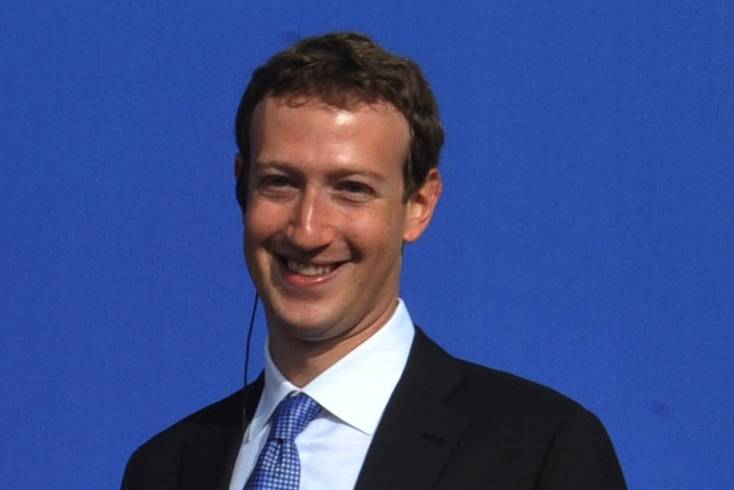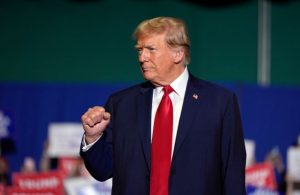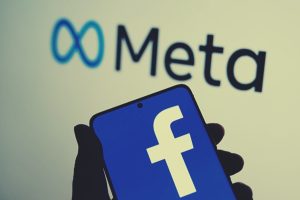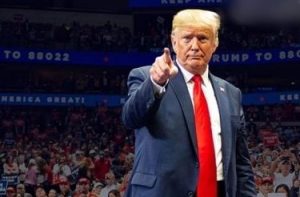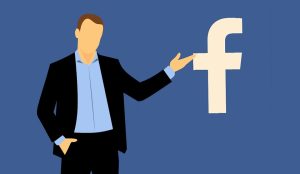Don’t forget that when Phillip Morris changed it’s name to Altria it was still selling cigarettes that caused cancer,” tweeted Democratic lawyer Marc Elias…reports Asian Lite News.
Facebook changed its corporate name to Meta on Thursday, moving aggressively to distance itself from a social-media business embroiled in crisis and rebrand itself as a forward-looking creator of a new digital world known as the “metaverse.”
In 75-minute online presentation, CEO Mark Zuckerberg urged users to adjust their thinking about the company, which he said had outgrown its ubiquitous and problematic social media app – a platform that will continue to be known as Facebook. Instead, he said, the company plans to focus on what Zuckerberg described as the next wave of computing: a virtual universe where people will roam freely as avatars, attending virtual business meetings, shopping in virtual stores and socializing at virtual get-togethers.
“From now on, we’re going to be the metaverse first. Not Facebook first,” Zuckerberg said at Connect, the company’s annual event focused on virtual and augmented reality. “Facebook is one of the most used products in the world. But increasingly, it doesn’t encompass everything that we do. Right now, our brand is so tightly linked to one product that it can’t possibly represent everything we are doing.”
The move comes as Facebook is mired in controversy over allegations that it has privately and meticulously tracked real-world harms exacerbated by its platforms, ignored warnings from its employees about the risks of their design decisions and exposed vulnerable communities around the world to a cocktail of dangerous content. After a whistleblower this month turned over tens of thousands of internal company documents to Congress and the U.S. Securities and Exchange Commission, lawmakers and critics have called for urgent action to rein in the tech giant.
The revelations by whistleblower Frances Haugen represent arguably the most profound challenge yet to Zuckerberg and his company, which ranks as the largest social-media platform in the world. Critics swiftly criticized the move, comparing it to the crisis strategy employed by tobacco company Phillip Morris when it became clear that the company had long known that cigarettes damaged to human health.
“Don’t forget that when Phillip Morris changed it’s name to Altria it was still selling cigarettes that caused cancer,” tweeted Democratic lawyer Marc Elias.
Zuckerberg said the rebrand would heed the “lessons” of the past, noting in a blog post that privacy and safety would be built into the new generation of products “from day one” – a clear nod to Facebook’s record of eroding trust. In his keynote address, he also nodded to Facebook’s problems, saying, “The last few years have been humbling for me and my company in a lot of ways.”
But Facebook’s trust deficit is real. The crisis brought on by the Facebook Papers, which were provided to Congress and the Securities and Exchange Commission in response to a whistleblower lawsuit, follows other scandals in recent years, such as Russian disinformation around the 2016 presidential election and the Cambridge Analytica crisis that highlighted the improper sharing of personal data.
The current crisis is more existential for the company, because the harm comes from within rather than from an outsider abusing the service. The Facebook Papers also touch every aspect of the service, exposing fundamental flaws in the architecture of its algorithms, the design of the platform, and its policies, while the harms exposed around mental health and polarization hit close to home for many Americans.
The Facebook Papers were obtained by a consortium of news organizations, including The Washington Post. Facebook has called them a “coordinated effort to selectively use leaked documents to paint a false picture of our company.”
One of the major allegations of the Facebook Papers is that the company built and deployed social media technology without having a grasp on its harmful effects. Critics fear the same problems would plague the metaverse – only the stakes could be higher, as Zuckerberg pitched that people would essentially live part of their lives in his virtual world.

He sought to offset potential criticism by saying in his presentation that the next generation of Internet services would be built with greater “humility and openness,” and take the “lessons” of the past into account. But critics and some former insiders questioned that commitment.
“I was thinking during the keynote, who will be the cops in the metaverse?” said Katie Harbath, founder and CEO of consultancy Anchor Change and former Facebook public policy director. “The first few years may seem great because not that many people are on the service, but the more that come on, the more bad actors. And then the company plays catch up.”
ALSO READ-Zuckerberg issues apology after Facebook outage
READ MORE-‘Fake news’ flourished on Facebook during US presidential poll
